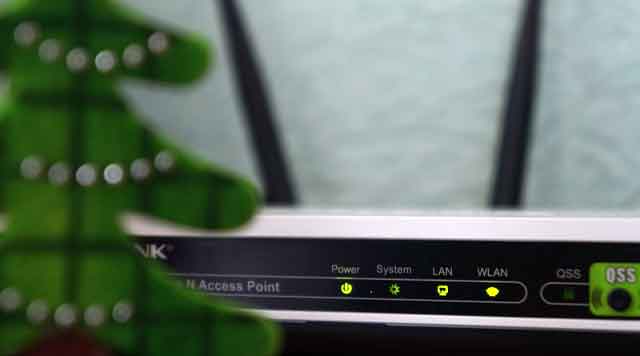Modem vs Router: What’s the Difference?
You must be using the internet while reading this article, and may probably be using both a router and a modem. So, what is the difference between them? The point that differentiates a router and a modem is that a router connects devices to Wi-Fi, and a modem connects to the internet. We reviewed both the router and the modem to take away the confusion about how they work. This article will help you choose which device you’ll need for your internet needs.
Modem is not responsible for Wi-Fi and doesn’t set up a local network. It connects directly to the internet and decodes the signal from an ISP.
Routers do not decode the signal from an Internet Service Provider and splits a connection to many devices. It creates and manages Wi-Fi, and establishes a local network.
Quite often people mix up both the devices if your ISP rents both to you as part of an internet package. Knowing how each modem and router works and the difference between them can help you be a better consumer. You will save money by buying equipment, rather than paying a monthly fee to an Internet Service Provider (ISP).
Modems Pros and Cons
Pros–
It converts the signal from the ISP to a universal one that a computer can use and is compatible specifically with the ISP. It also connects to an Internet Service Provider.
Cons-
It doesn’t connect many devices to the internet and doesn’t run Wi-Fi. Also, you can’t create a local network with it.
Whether you use a DSL or dial-up phone connection, satellite such as Direct TV, fiber optics from FIOS, a cable provider such as Comcast – a modem connects the source of your internet from your home network or your ISP.
The modem connects directly to a computer – or the router — using an Ethernet Cable. Modems are not interchangeable and are different for each type of service. Internet Service Providers rent modems to subscribers for a monthly fee. However, cable modems are available for sale at relatively low prices, and monthly rental rates are around $10 extra per month.
Buying a cable modem that costs about $100 quickly pays for itself if you plan to keep the same service for a year or more. It’s worthwhile to rent a modem from Verizon as FIOS-compatible modems are hard to come by. Some Internet Service Providers lease both routers and modems.
Routers Pros and Cons
Pros-
- Connects to a VPN.
- Runs a firewall.
- Hosts Wi-Fi.
- Internet connection is split to many devices.
- Creates a local area network (LAN).
Cons-
- It doesn’t decode the signal from an Internet Service Provider.
- Cannot connect directly to the internet.
A router creates a private network in a business such as a coffee shop, office, or home by connecting to a modem. It connects to a local router when you connect a device to Wi-Fi.
Routers connect smart devices, including smart home products such as security systems and light bulbs, smart speakers such as Amazon Echo, and smartphones.
Some Internet Service Providers offer routers for rental. It’s worth buying one to get the latest technology. Purchasing a wireless router means you can select the model with advanced features for gaming and other activities if you need them and is best suited for your office or home.
Due to impenetrable walls, multiple floors, or one with a complicated layout or a vast space, one wireless router isn’t sufficient to cover an entire office or home in some scenarios. Buy range extenders that expand their reach and connect to the router to avoid dead zones. However, that translates into slower download and browsing speeds, which usually means less bandwidth in areas near the extender. This is when investing in a mesh network may make sense.
Also Read: Essential Tools And Gadgets For Graphic Designers
A Wi-Fi mesh network consists of various satellites, or nodes, and a single primary router that relay the wireless signal from one to the next, like a chain. There’s no bandwidth loss as mesh network nodes communicate with each other, rather than extenders that communicate only with this router. The signal is as powerful as if you were next to the primary router, and there’s no limit to how many nodes you can set up, and you can manage it using a smartphone.
Whether you need a mesh network or a range extender depends on how much bandwidth is required and the space’s size.
Modem Vs. Router: The Final Verdict
A modem and a router are needed to set up a home network. You can use only a modem if you connect a single computer to the internet with a wire. There are 0 cases where you can use just a router as you always need it to decode the ISP signal.
The router is usually what you want to focus on when you want to speed up your network. It distributes the signal to all your devices and has bandwidth limits. Your router manages and creates your Wi-Fi.
Typically, a modem doesn’t cause a slow connection. Generally, your ISP will give you one suitable for your subscription. You can test whether you’re getting your advertised internet speed if you plug in your computer directly to your modem and run a speed test. If not, contact your Internet Service Provider. Your modem may be outdated, or there might be a connection issue. Your Internet Service Provider may swap it out for a newer model in this case.
There are also routers with integrated modems that perform both functions. These modems can be purchased directly or rented from your Internet Service Provider. If you have a phone package, internet, and cable, these combo devices might include a VoIP function.
Combination devices are not usually the best option because the whole thing is useless if one part breaks, and you can’t upgrade one device at a time. Buying a combo modem and router is convenient if you don’t need the most significant and latest tech.




